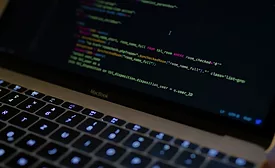Cybersecurity
The Open Security & Safety Alliance announces camera cybersecurity specification and alliance council for app developers
Third specification from OSSA prescribes leading measures to mitigate cybersecurity camera threats and vulnerabilities; New app developer council involves essential entrepreneurs and small businesses in the alliance ecosystem
March 4, 2021
Sign-up to receive top management & result-driven techniques in the industry.
Join over 20,000+ industry leaders who receive our premium content.
SIGN UP TODAY!Copyright ©2026. All Rights Reserved BNP Media.
Design, CMS, Hosting & Web Development :: ePublishing










